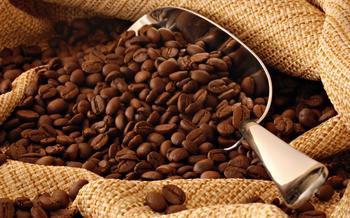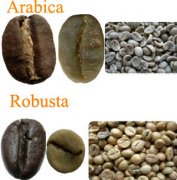Yunnan Dehong small Coffee planting Base

Dehong small grain coffee is native to Africa and Ethiopia and is the main cultivated variety in the world. In 1951, coffee seed was first introduced to Dehong Luxi Cotton cropping Experimental Station for productive cultivation. The seedlings were planted in 6 mu and grew well. In 1956, the Dehong Prefecture Committee decided to vigorously develop coffee in the whole state, and held a training course on coffee planting techniques throughout the state, so that small-grain coffee was widely developed in the whole state. In 1958, Dehong Prefecture established a state coffee production base in Mangshi, carried out research on coffee planting technology and pest control technology, and conquered coffee seed selection, high-yield cultivation, pest control and other topics, so that scientific coffee planting technology has been popularized among the people of all ethnic groups. In 1960, the planting area of coffee in the state has reached 15000 mu, with an output of more than 40 tons. Dehong small grains of coffee are processed into coffee powder in Shanghai, packed in tin cans and exported to London. At the International Exposition in 1963, Dehong small Grain Coffee was rated as a high-quality product with rich aroma, slightly sour and delicious, and gained a reputation comparable to that of Lanshan Coffee.
In 1966, the output of coffee beans in the whole state reached more than 100 tons. due to the decline in international market prices, the market was not smooth, coupled with the reasons of the "Cultural Revolution", scientific research and production were seriously frustrated, and Dehong small-grain coffee production entered a low ebb. Most of the land where coffee was originally grown has been deserted.
After the third Plenary session of the 11th CPC Central Committee, the domestic and foreign coffee market demand increased, Yingjiang Luxi and other farms and people began to vigorously develop the cultivation of Dehong small-grain coffee, a total of dry coffee beans Qiu tons, and achieved better economic benefits. In deepening the rural economic reform and adjusting the industrial structure and product structure, the Dehong prefecture party committee and the state government have formulated to give full play to the advantages of hot areas and take the road of developing characteristic economy, in order to meet the needs of the market economy, people of all ethnic groups in Dehong Prefecture regard the development of Dehong small-grain coffee as an important project for the development of green industry, and have formed a large-scale production and planting base.
Important Notice :
前街咖啡 FrontStreet Coffee has moved to new addredd:
FrontStreet Coffee Address: 315,Donghua East Road,GuangZhou
Tel:020 38364473
- Prev

What do you not know about robsta robsta's notoriety?
People habitually treat things with dichotomies, good and bad, good and evil, good and bad... The same is true in the coffee world. Arabica coffee beans are always classified as good, and their distant relatives, Robusta coffee beans, tend to be classified as bad. We might say, if Arabica is a gift from angels
- Next

Drinking two cups of coffee a day reduces the risk of stroke
Coffee is a double-edged sword. Some experts think that coffee is a dangerous irritant, while others think that drinking coffee can save lives. A new Swedish study published in the American Journal of Epidemiology found that drinking two cups of coffee a day significantly reduced the risk of stroke. The comprehensive analysis of the health benefits of coffee completed by scientists at Karolinska Medical College confirmed that drinking coffee
Related
- Beginners will see the "Coffee pull flower" guide!
- What is the difference between ice blog purified milk and ordinary milk coffee?
- Why is the Philippines the largest producer of crops in Liberia?
- For coffee extraction, should the fine powder be retained?
- How does extracted espresso fill pressed powder? How much strength does it take to press the powder?
- How to make jasmine cold extract coffee? Is the jasmine + latte good?
- Will this little toy really make the coffee taste better? How does Lily Drip affect coffee extraction?
- Will the action of slapping the filter cup also affect coffee extraction?
- What's the difference between powder-to-water ratio and powder-to-liquid ratio?
- What is the Ethiopian local species? What does it have to do with Heirloom native species?

